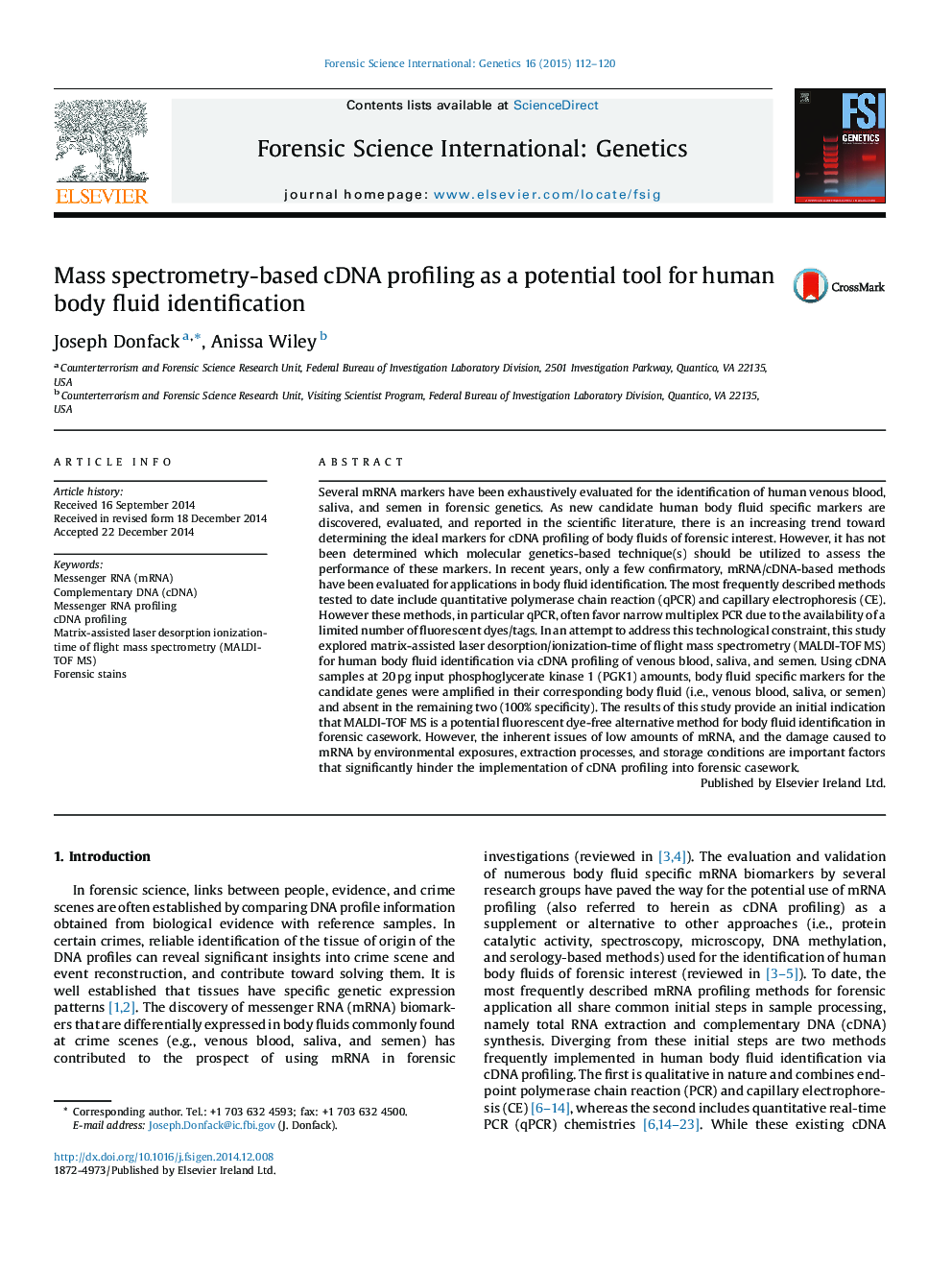| کد مقاله | کد نشریه | سال انتشار | مقاله انگلیسی | نسخه تمام متن |
|---|---|---|---|---|
| 6553778 | 160893 | 2015 | 9 صفحه PDF | دانلود رایگان |
عنوان انگلیسی مقاله ISI
Mass spectrometry-based cDNA profiling as a potential tool for human body fluid identification
دانلود مقاله + سفارش ترجمه
دانلود مقاله ISI انگلیسی
رایگان برای ایرانیان
کلمات کلیدی
موضوعات مرتبط
علوم زیستی و بیوفناوری
بیوشیمی، ژنتیک و زیست شناسی مولکولی
ژنتیک
پیش نمایش صفحه اول مقاله

چکیده انگلیسی
Several mRNA markers have been exhaustively evaluated for the identification of human venous blood, saliva, and semen in forensic genetics. As new candidate human body fluid specific markers are discovered, evaluated, and reported in the scientific literature, there is an increasing trend toward determining the ideal markers for cDNA profiling of body fluids of forensic interest. However, it has not been determined which molecular genetics-based technique(s) should be utilized to assess the performance of these markers. In recent years, only a few confirmatory, mRNA/cDNA-based methods have been evaluated for applications in body fluid identification. The most frequently described methods tested to date include quantitative polymerase chain reaction (qPCR) and capillary electrophoresis (CE). However these methods, in particular qPCR, often favor narrow multiplex PCR due to the availability of a limited number of fluorescent dyes/tags. In an attempt to address this technological constraint, this study explored matrix-assisted laser desorption/ionization-time of flight mass spectrometry (MALDI-TOF MS) for human body fluid identification via cDNA profiling of venous blood, saliva, and semen. Using cDNA samples at 20Â pg input phosphoglycerate kinase 1 (PGK1) amounts, body fluid specific markers for the candidate genes were amplified in their corresponding body fluid (i.e., venous blood, saliva, or semen) and absent in the remaining two (100% specificity). The results of this study provide an initial indication that MALDI-TOF MS is a potential fluorescent dye-free alternative method for body fluid identification in forensic casework. However, the inherent issues of low amounts of mRNA, and the damage caused to mRNA by environmental exposures, extraction processes, and storage conditions are important factors that significantly hinder the implementation of cDNA profiling into forensic casework.
ناشر
Database: Elsevier - ScienceDirect (ساینس دایرکت)
Journal: Forensic Science International: Genetics - Volume 16, May 2015, Pages 112-120
Journal: Forensic Science International: Genetics - Volume 16, May 2015, Pages 112-120
نویسندگان
Joseph Donfack, Anissa Wiley,